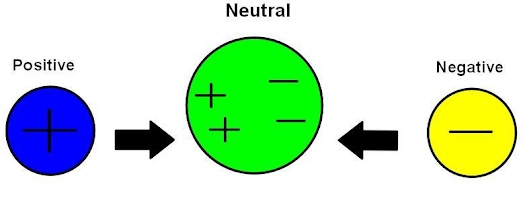
Atoms are electrically neutral because the number of protons in the nucleus of an atom is equal to the number of electrons surrounding the nucleus. The protons have a positive charge and the electrons have a negative charge, so the two forces cancel each other out, resulting in a neutral atom.

